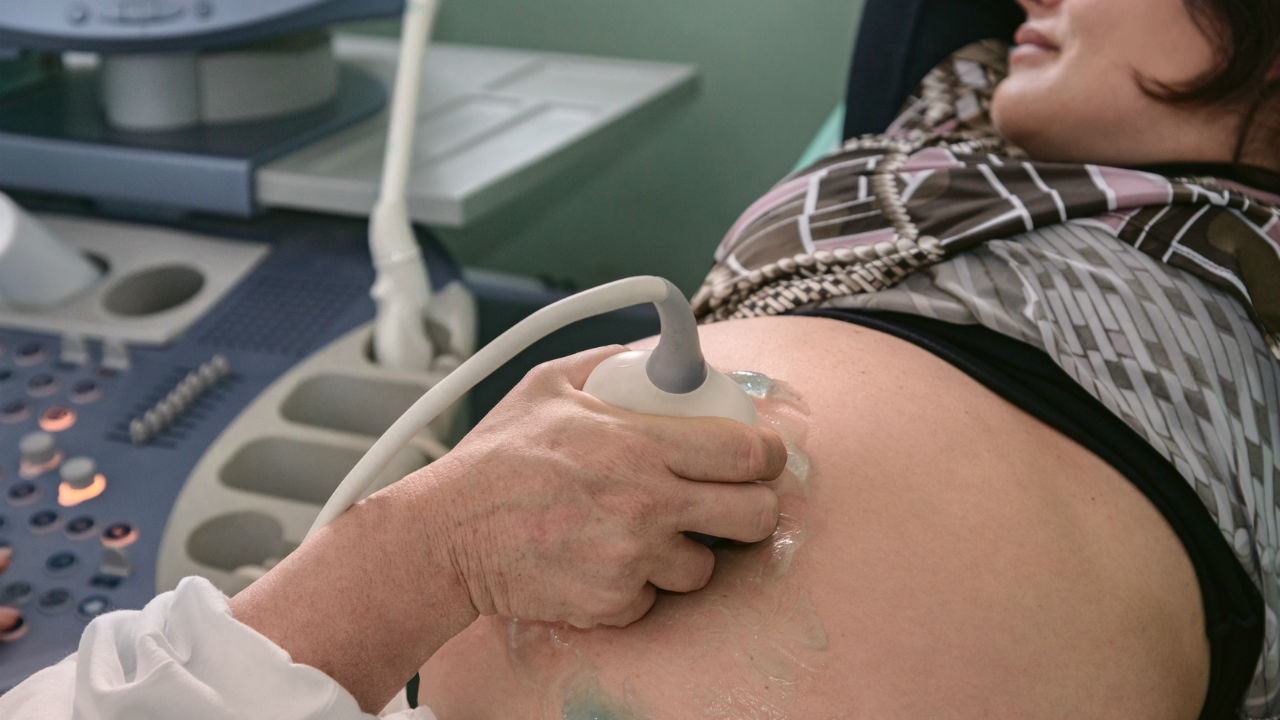Dr. Marlin Mills describes the fetal risks present when a woman has preeclampsia. Dr. Mills is on staff at Banner Desert Medical Center in Mesa, Arizona.
Dr. Mills:
The primary fetal risk is a premature delivery. When preeclampsia occurs early, becomes more severe, and begins to affect the fetus then the pre-term delivery may be indicated to help the fetus in that regard. Remembering that this is a condition that affects the placenta and placental circulation it also therefore affects the placenta’s ability to support the fetus. So intrauterine growth restriction, babies that don’t grow as well during the pregnancy, risk of loss of the fetus prior to delivery because the placenta becomes so damaged and so affected that it can’t support fetal life, is a greater risk. Both of these conditions are one of the reasons that a pregnancy might have to be delivered early.
Sometimes in women who have not developed symptoms of preeclampsia, one of the first signs that we see is a fetus or baby that is not growing adequately. So in mothers who are at risk, first time moms, mothers in those risk categories that we talked about where the fetus is under-grown or has what we call intrauterine growth restriction, then watching carefully for additional signs and symptoms of preeclampsia becomes important to do.
Blood pressure elevation or hypertension can affect blood flow to the placenta and increases the risk of premature placental separation, bleeding behind the placenta, and what we call a placental abruption. Again, if that were to occur that can place the mother at risk for hemorrhage, the fetus at risk for not receiving enough oxygen, and can become an acute emergent cause for delivery often by cesarean delivery to protect those babies and those mothers.
About Dr. Marlin D. Mills, M.D.:
Marlin D. Mills, MD, is board-certified in Obstetrics and Gynecology, and is on staff at Banner Desert Medical Center. A former medical director for the hospital, Dr. Mills provides yearly educational programming to the nurse staff on high-risk obstetrics—new ideas and options. Dr. Mills received his medical degree at Universidad Autonoma de Guadalajara Medical School in Mexico. He completed his Obstetrics and Gynecology residency at Valley Medical Center in Fresno, Calif., and his Maternal-Fetal Medicine fellowship training at University of California Irvine Medical Center, Long Beach, Calif.
Click Here For More Information On High-Risk Pregnancy
Click Here For More Information On Multiple Births
Keywords:
Condition: Preeclampsia, Pregnancy, High-Risk Pregnancy
Related Terms: Cesarean Section, C-Section, Vaginal Birth, Elective C-Section, Emergency C-Section, Labor, Umbilical Cord Prolapse, Preeclampsia, Toxemia
Health Care Provider: Banner Hospital, Banner Medical Center, Banner Health, Banner Desert Medical Center, Banner Desert Hospital, Maternity Services at Banner Desert Medical Center
Location: Mesa, Arizona, AZ, 85202, East Valley, Tempe, Chandler, Gilbert, Apache Junction, Phoenix, Maricopa County, Guadalupe, Phoenix Metropolitan Area
Expert: Dr. Marlin D. Mills, Marlin Mills, M.D, Doctor Mills, Obstetrician Marlin Mills, High-Risk Pregnancy Expert Marlin Mills, Marlin Mills, OB/GYN
Expertise: High-Risk Pregnancy, Cesarean Section, C-Section, Obstetrics and Gynecology, Maternal Fetal Medicine, Prenatal Education, Perinatal Care, Birthing Services, Fetal Assessment, Breastfeeding Support, Fetal Therapy, Fetal Intervention, Premature Babies, Preeclampsia, Phoenix Perinatal Associates, High-Risk Obstetrics, Fetal Physiology, Perinatal Grief


















